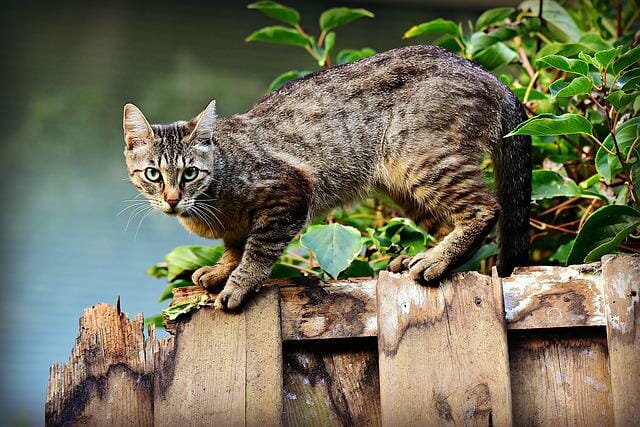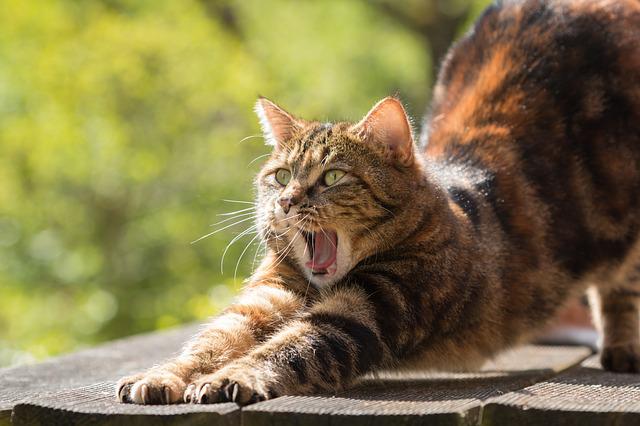Do Cats Have 9 Lives: Misconception About Cat Lives and Tips to Prolong Their Life
No, cats do not have nine lives. This popular myth or superstition has existed for centuries but is not based on reality. The origin of this myth is not clear to many, but it may have originated from the fact that cats are very agile and can often land on their feet, even after falling from a high place. This ability to land on their feet led people to believe cats have multiple lives.


Table of Contents
Truth Behind the Myth
The misconception that cats have nine lives is one of the most common and persistent myths about cats. While it may seem harmless and even amusing, this myth can lead to misconceptions about cats and their behavior.
For example, some people may assume that cats are indestructible or don’t feel pain, leading to neglect or mistreatment. Others may assume that cats can take risks without consequence, such as jumping from high places, resulting in injury or even death.
In reality, cats are vulnerable animals that need proper care and protection to live long and healthy lives. While they may have some unique abilities and traits, such as their agility and sharp senses, they are not invincible. As a result, they can suffer injury and illness like any other animal.
It is important to treat cats with respect and provide them with a safe and loving environment to help them thrive. This includes proper nutrition, regular veterinary care, and a safe and secure living space. Doing so can help your cat live a long, happy life without relying on the nine-lives myth.
Tips to Help Your Cat Live a Long and Healthy Life


Provide Proper Nutrition
Cats are carnivores, requiring a diet high in animal protein. Look for a portion of high-quality cat food that lists meat or poultry as the first ingredient and is free from fillers like corn or soy. Kittens, adult cats, and senior cats have different nutritional needs. Choose a food appropriate for your cat’s age and life stage.
Obesity is a common problem in cats, leading to various health problems. Measure your cat’s food and feed them the recommended amount based on their weight and activity level. Ensure your cat has access to clean, fresh water at all times.
Human food is not nutritionally balanced for cats and can cause digestive upset or toxicity. Stick to high-quality commercial cat food. If you have questions about your cat’s nutrition, consult a veterinarian who can recommend a diet that meets your cat’s specific needs.
Regular Veterinary Care
- Schedule regular check-ups: Cats should see a veterinarian at least once a year for a check-up. Older cats or cats with health problems may require more frequent visits.
- Vaccinations: Vaccinations are important to protect your cat from infectious diseases. Work with your veterinarian to develop a vaccination schedule appropriate for your cat’s age and lifestyle.
- Preventative care: Regular visits to the veterinarian can help detect health problems early and prevent serious illnesses. Your veterinarian may recommend preventative care such as flea and tick prevention, heartworm prevention, and dental care.
- Monitor for changes: Keep an eye out for changes in your cat’s behavior or health, such as changes in appetite, weight loss or gain, or lethargy. These could be signs of a health problem that requires veterinary attention.
- Keep up with medications: If your cat requires medication for a chronic condition, give it as directed and refill prescriptions on time.
Keep Them Indoors
Keeping your cat indoors can help keep them safe and healthy. Outdoor cats are at risk of being hit by cars, attacked by other animals, or exposed to dangerous toxins. Keeping your cat indoors can help keep them safe from these hazards.
Outdoor cats are more likely to be exposed to infectious diseases, parasites, and other health problems. Keeping your cat indoors can help prevent these health problems. Indoor cats generally live longer than outdoor cats. However, they are not exposed to the same hazards and health risks. Also, indoor cats have access to a comfortable and climate-controlled living space, which can help keep them happy and healthy.
Keep Their Environment Clean
Keeping your cat’s environment clean is important for their health and well-being. Clean the litter box at least once daily, more frequently if you have multiple cats. Use unscented litter and avoid placing the litter box near food and water bowls. Wash food and water bowls daily with hot, soapy water. Stainless steel bowls are easy to clean and won’t harbor bacteria.


Wash your cat’s bedding regularly to keep it clean and fresh. Use a mild detergent and avoid using fabric softeners, which can irritate your cat’s skin. Clean your cat’s toys regularly with hot, soapy water or a pet-safe disinfectant. Clean your cat’s scratching posts regularly to remove dirt, debris, and cat hair. Vacuum floors and surfaces frequently to remove cat hair and dander. Use a pet-safe cleaning product to clean surfaces.
Provide Mental and Physical Stimulation
Providing mental and physical stimulation is important for keeping your cat healthy and happy. Here are some tips for providing stimulation:
- Playtime: Play with your cat daily to help them burn off excess energy. Use toys that mimic prey, such as feathers or balls, to encourage your cat to play.
- Scratching posts: Provide your cat with a scratching post to help them exercise their claws and relieve stress.
- Window perches: Cats love to watch birds and other animals outside. Provide your cat with a window perch or a screened-in porch to give them a taste of the outdoors.
- Puzzle feeders: Use puzzle feeders to provide mental stimulation and keep your cat’s mind active. These feeders require your cat to work for their food, which can help prevent boredom.
- Hide-and-seek: Hide treats or toys around your home to encourage your cat to hunt and explore.
- Cat trees: Provide your cat with a cat tree or other climbing structure to help them exercise and play.
Spay or Neuter
Spaying or neutering can prevent certain types of cancer and reduce the risk of other health problems, such as uterine infections and prostate issues. However, unneutered male cats are likelier to exhibit aggressive or territorial behavior, while unspayed female cats may display aggressive behavior when in heat.
By spaying or neutering your cat, you can help prevent unwanted litters and reduce the number of cats in animal shelters. For example, unneutered male cats may roam for a mate, increasing their risk of being hit by a car or getting into fights with other animals. According to the Humane Society, spayed or neutered cats live longer than their unaltered counterparts.
